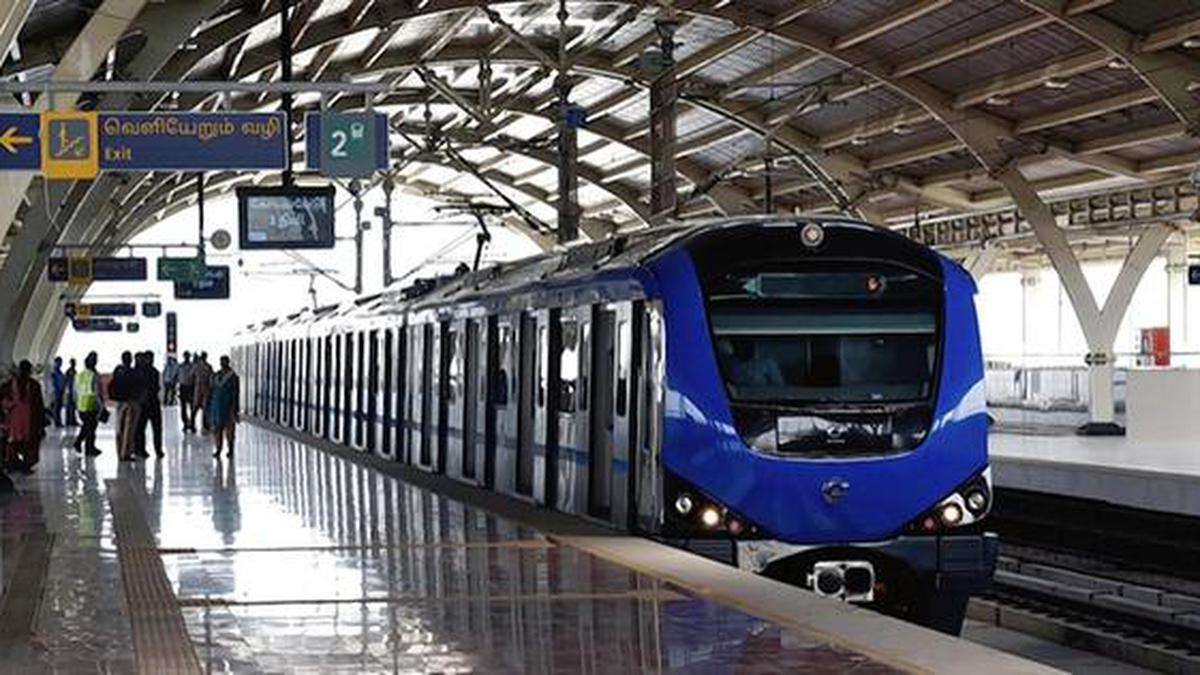
Chennai Metro Rail to provide roofing with toughened glass in elevated stations for protection during rains
The Hindu
Chennai Metro Rail addressing slippery platforms issue by covering areas with toughened glass and aluminium louvers.
Every time it rains, whether it a heavy downpour or mild shower, rainwater spills over onto the platform, making it slippery for passengers. In a bid to address this issue, Chennai Metro Rail is taking up work now to cover some of the areas in the stations across the phase I and phase I extension network.
Chennai Metro Rail has an operational network of 54-km, which includes 20 elevated stations. In certain areas of the stations, such as the staircases, entry points, and platforms, passengers have been facing difficulty walking when it rains.
Ragavan, a regular user of Chennai Metro Rail system, said: “As such, the station flooring in the platforms is quite slippery and the situation gets further exacerbated during rains. We have to walk pretty carefully. So, if the authorities are providing roofing, then it is welcome move.”
According to officials of Chennai Metro Rail Limited (CMRL), in stations like Guindy, Nanganallur and Meenambakkam, the work is already in progress. They are covering few of the areas which is open to sky with toughened glass and aluminium louvers. “Passengers have told us about the difficulties they face. We have identified the elevated stations where the issue persists and will complete it on priority. We hope to complete the work in phase I network in a couple of months,” an official said.
Now, the work will be extended to stations in the phase I extension too and CMRL has floated bids for it. “In the phase I extension, we will do it in stations including Wimco Nagar,Tiruvottiyur, Tiruvottiyur Theradi, Kaladipet, Tollgate, and New Washermenpet. We should be able to award the tender in about three months and the work may be completed this year,” another official said.





















 Run 3 Space | Play Space Running Game
Run 3 Space | Play Space Running Game Traffic Jam 3D | Online Racing Game
Traffic Jam 3D | Online Racing Game Duck Hunt | Play Old Classic Game
Duck Hunt | Play Old Classic Game











